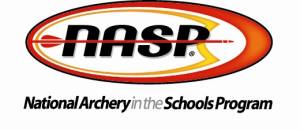Are you interested in the outdoors? Are you fascinated with trees or wildlife? Do you like fishing, hunting, or camping? If your answer was "yes" to any of these questions, then this concentration is for you. Our students graduate our program knowing how to identify birds, waterfowl, trees, and fish. In addition, students learn how to write a wildlife management plan, learn boating safety (and get a state safe boating certificate), and perform fish sampling techniques. Our program offers several courses where students may learn about the subject.
Courses offered to juniors & seniors are:
Wildlife Management
In this course, students learn about the ecology of forests and how it affects wildlife. Students also learn about waterfowl, game birds, bats, and conservation law enforcement. Students install and monitor wood duck boxes in local wetlands.
Forestry
This course will explore the history of forestry in the United States and show the development of modern forest management. Students will learn about the anatomy and functions of trees and how we benefit from them. Students will also learn about forest products and practice making maple syrup in our sugarhouse. By the end of the course, students will be able to identify many local trees and shrubs.
Aquaculture
This course provides an in-depth look into the field of aquaculture as well as semi-aquatic species. In the class, students will learn about fish biology, growing techniques, water quality, and harvest techniques. A trip to the state fish hatchery is part of the class. Students will also learn about reptiles and amphibians, as well as different environmental issues that are affecting aquatic species.
North American Wildlife
This course focuses on the flying and crawling creatures in our environment. From insects to birds, students learn about identification, anatomy, niches, and benefits. Students also receive hands-on experience working with a real bee hive and learn how honey is made. Ticks and Lyme Disease are also studied.
---------------------------------------------------------------------------------------------
Possible Career Opportunities include:
Wildlife Biologist
Ecologists
Forester
Research Technicians
Scientist
Conservation Officer
Park Ranger
Park Interpreter
Fisheries Biologist
Fish Hatchery Operator
Environmental Educator
The Lebanon Ag Science program has a certified wildlife habitat. The habitat includes many flowering plants including butterfly bushes, milkweed, sedum, butterfly weed, and joe-pye weed. Our Eco-Code is: FLOWER.
Fun
Learning
Outside
With
Ecological
Resources
For more information, visit the National Wildlife Federations website.

Our school participates in National Archery in the Schools program. Students learn range safety and how to shoot a bow and arrows.
Below is a video about our maple sugaring process.